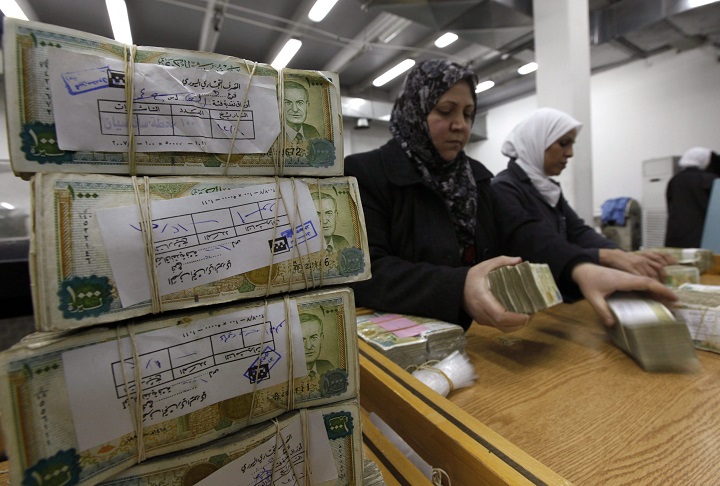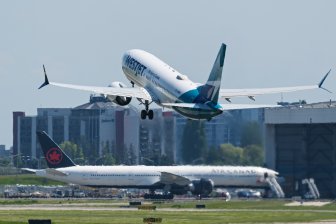BEIRUT – Syria’s Central Bank ordered money changers to exchange currency at an unprecedented 620 Syrian pounds to the dollar and announced it would reevaluate the rate on a daily basis, in a move that economists say amounts to jettisoning the fixed exchange rate that was once the bedrock of the Syrian economy.

READ MORE: Obama to send up to 250 military personnel to Syria
The new rate means the Syrian pound is now worth one-thirteenth of its pre-war value on legal markets, though economists reported it was trading at that rate on the black market two days ago. The currency traded at 47 pounds, also commonly known as lira, to the dollar before anti-government protests in 2011 drew a crackdown that sparked the current civil war.
Central Bank authorities will adjust the rate without forewarning with the aim to manage the currency’s “gradual decline,” Syrian state media reported.

The new regime, which Johns Hopkins economist Steve Henke described as a “managed flexible rate,” signals the end of the currency peg regimen that underpinned Syria’s managed socialist economy that brought decades of steady growth.
- Loblaw boycott: CEO responds to plans from ‘deeply unhappy’ customers
- Capital gains changes spur cottage market ‘anxiety.’ Will owners rush to sell?
- Why aren’t more foreign grocers in Canada? Lack of space a hurdle: minister
- As Canada’s tax deadline nears, what happens if you don’t file your return?
“Ultimately, it’s the government finances,” said Henke about the Central Bank decision. The government has little choice but to print more money — effectively exhausting the currency’s worth — to pay for its expenditures at a time when it is thought to be out of foreign currency reserves.
READ MORE: Shelling kills 10 children in Aleppo as Syria violence rises
An April report by the World Bank estimated Syria’s reserves at just $700 million, down $18 billion from before the war — though it acknowledged it was not an official figure — the effect of five years of crippling western sanctions and catastrophic war.
Inflation, already at 95%, according to Henke’s Troubled Currencies research initiative, could soar to 200-300 per cent, or levels last seen in 2013.
“They have experienced that in Syria, although they did get that under control,” he said.
American University of Beirut economist Simon Neaime said the Tuesday Central Bank announcement pointed to a “currency crisis.”
“It means they ran out of (foreign currency) reserves,” said Neaime. “They are floating the currency.”
He warned that dramatic inflation could follow. “It’s not going to stop at 620. You might wake up tomorrow and it’s 1,000. After tomorrow, 2,000 Syrian lira per dollar. There is no ceiling as to where it’s going to stop.”
READ MORE: Doctors Without Borders supported hospital in Aleppo destroyed in Syria airstrikes
The Syrian economy has been in free fall since 2012 and tax revenues have virtually collapsed, according to the World Bank. The government’s territorial losses in oil-rich areas have added to its woes.
“They used to export a lot of oil, but Daesh has being doing it on their behalf,” said Neaime, referring to the militant Islamic State group by its Arabic acronym.
The currency’s value has eroded since Russia announced it was scaling back its involvement in the war on the side of the government, in March, when it traded on the black market at roughly 440 pounds to the dollar.



Comments